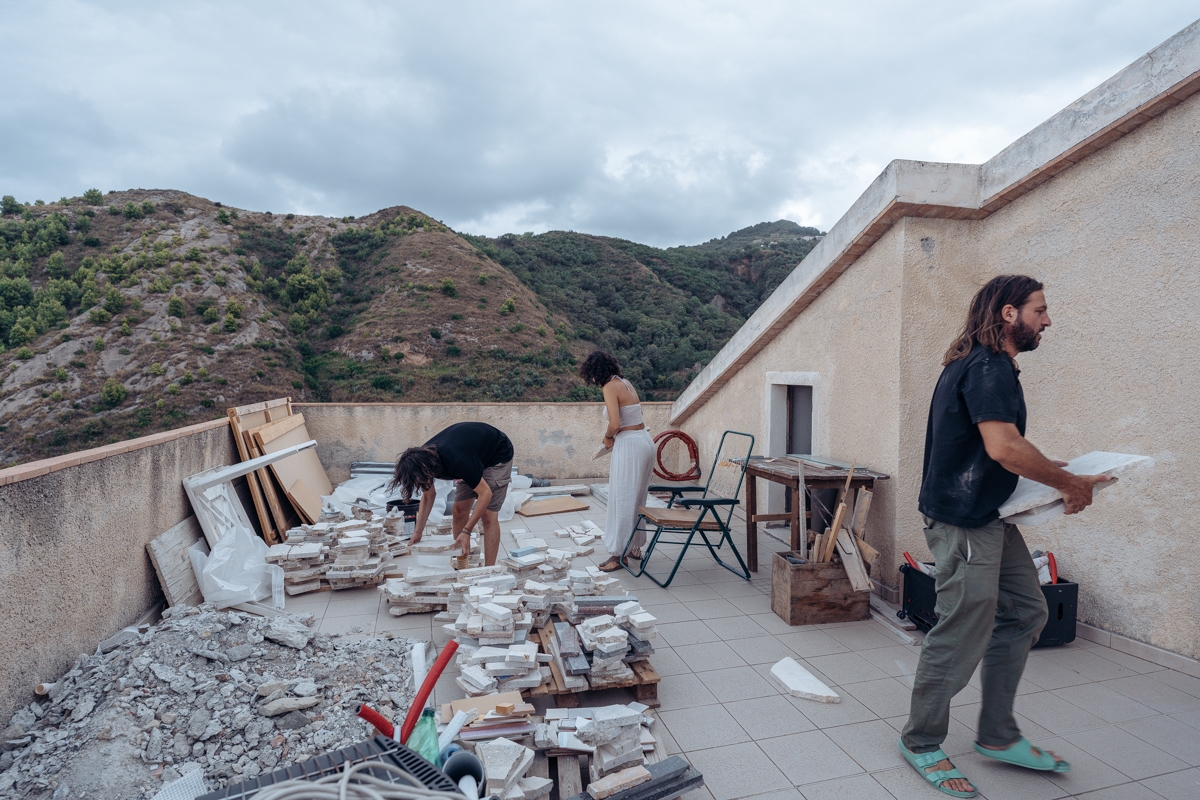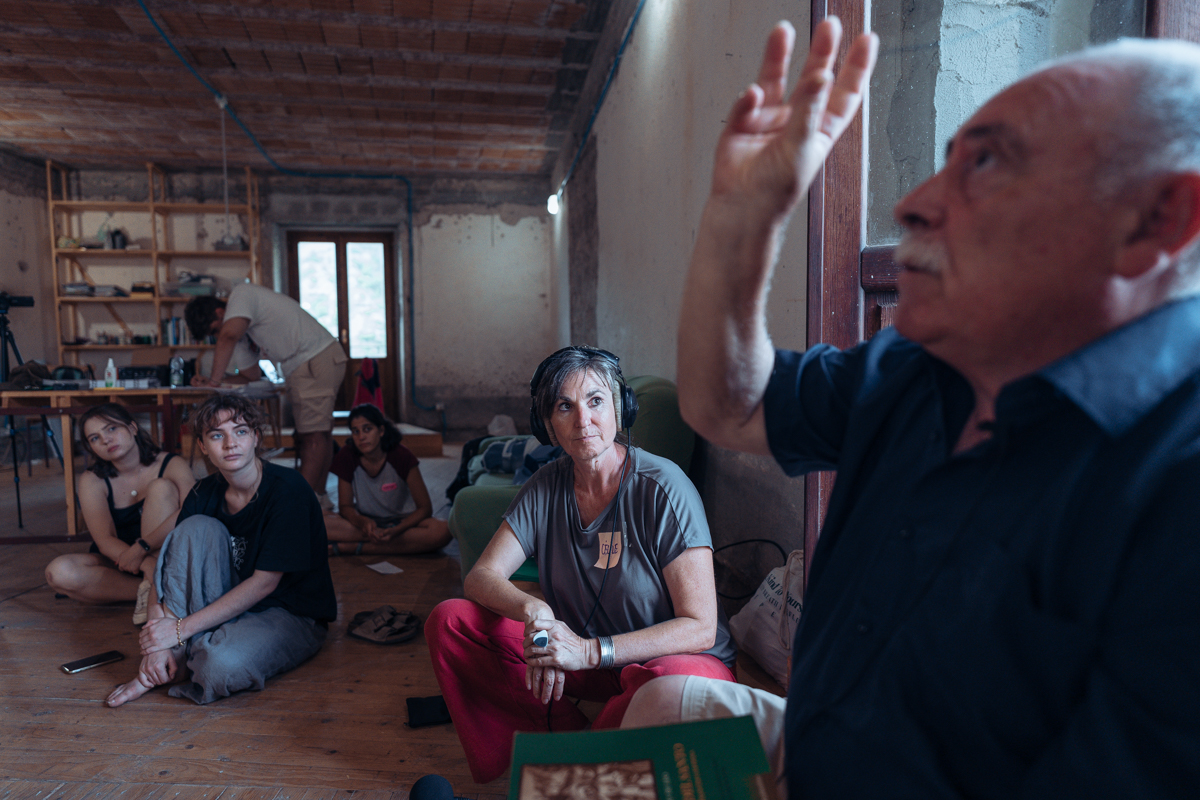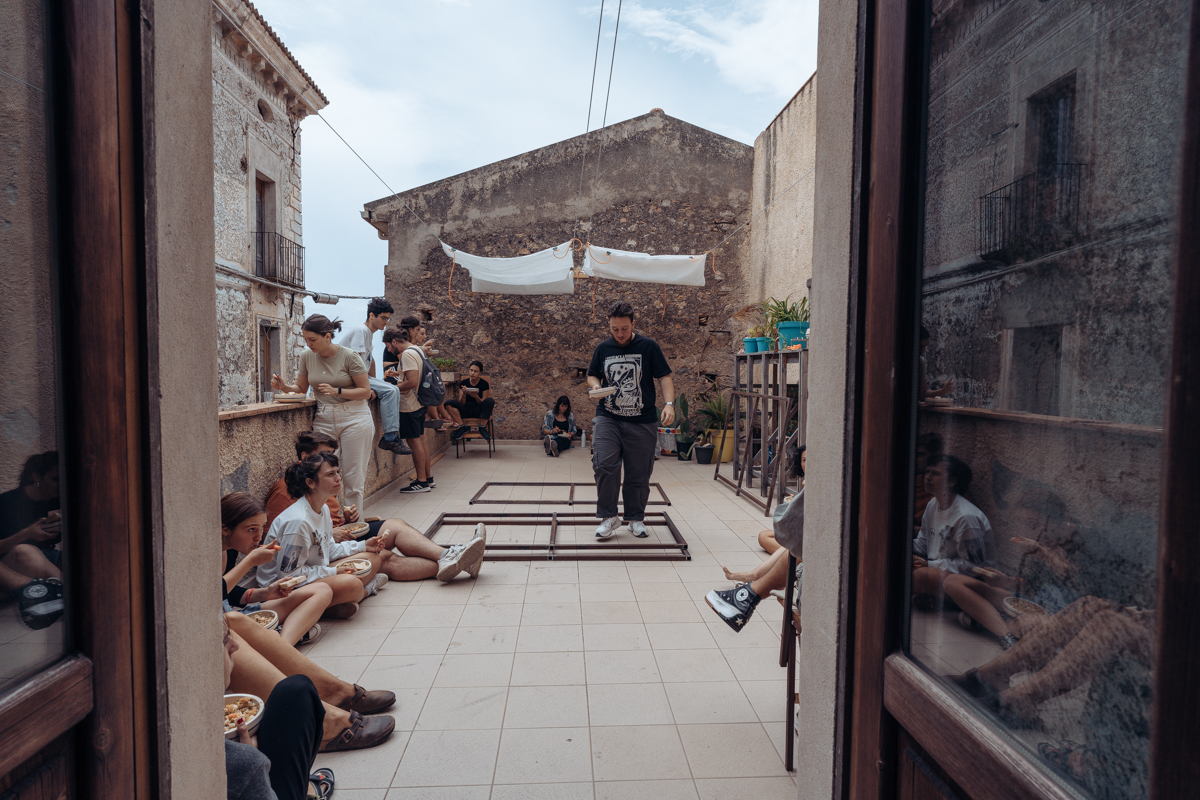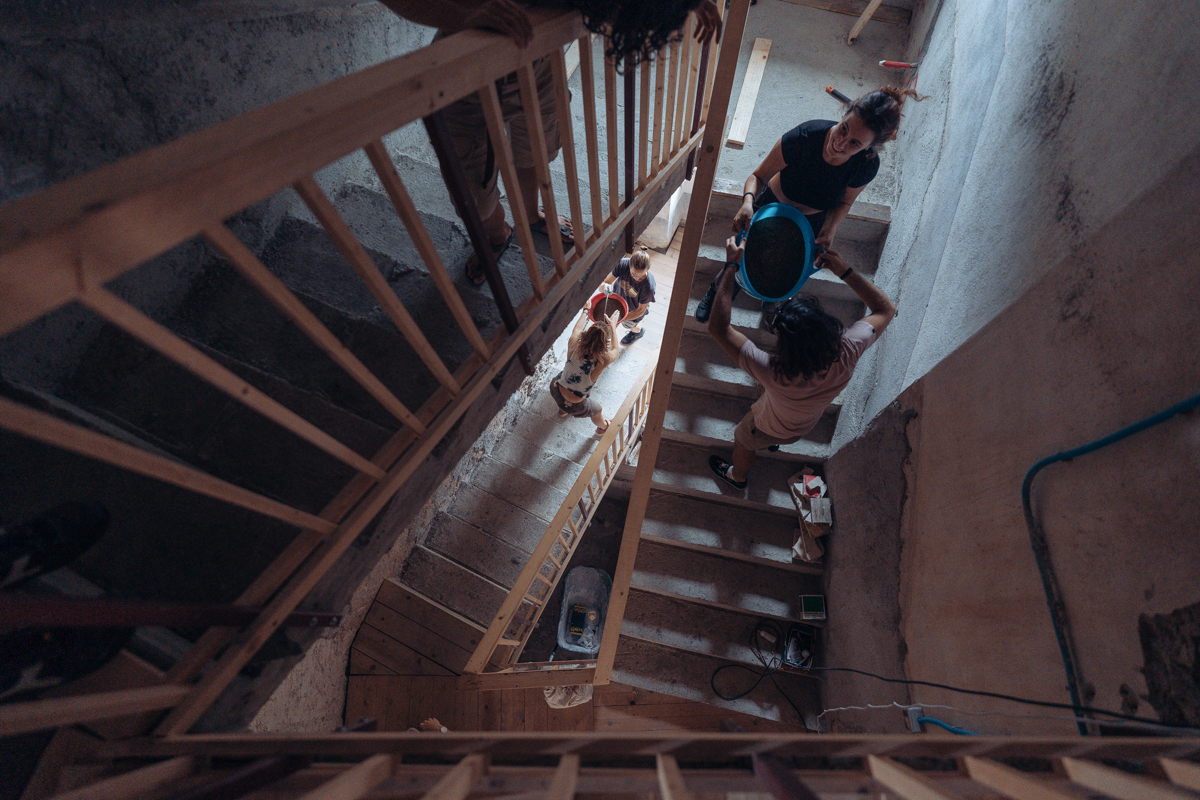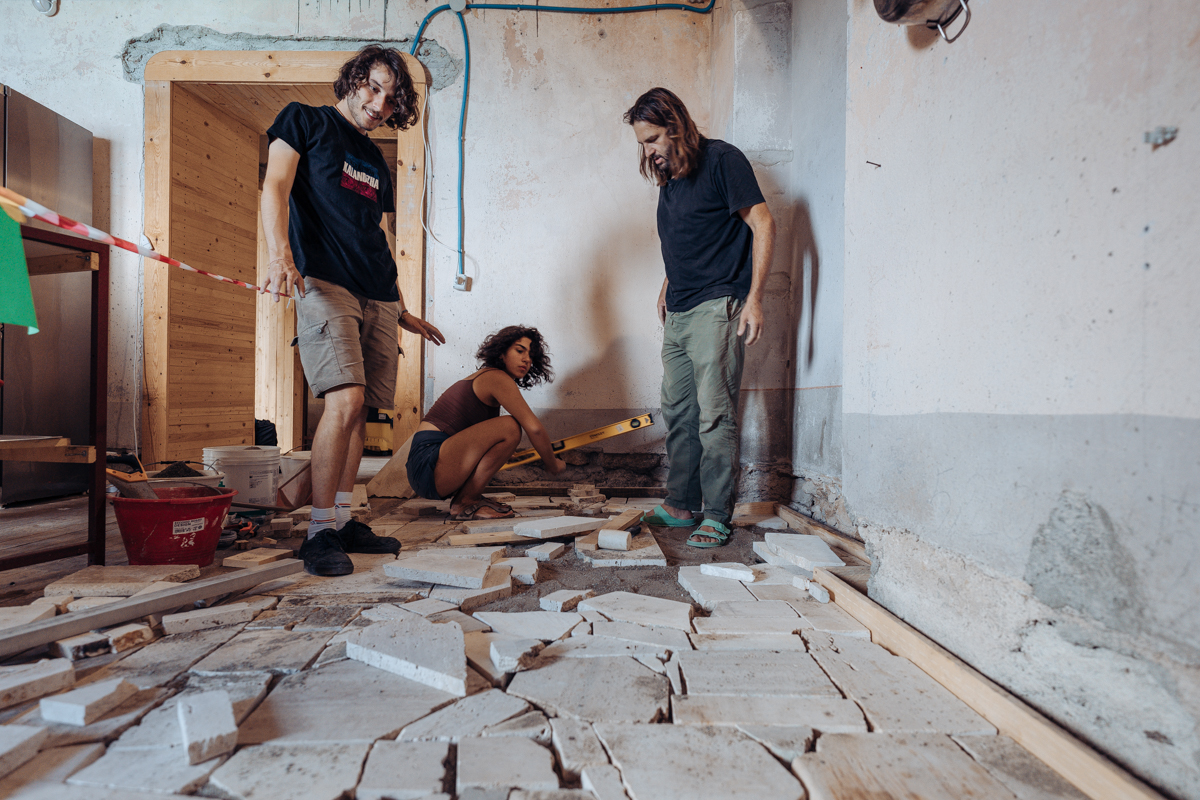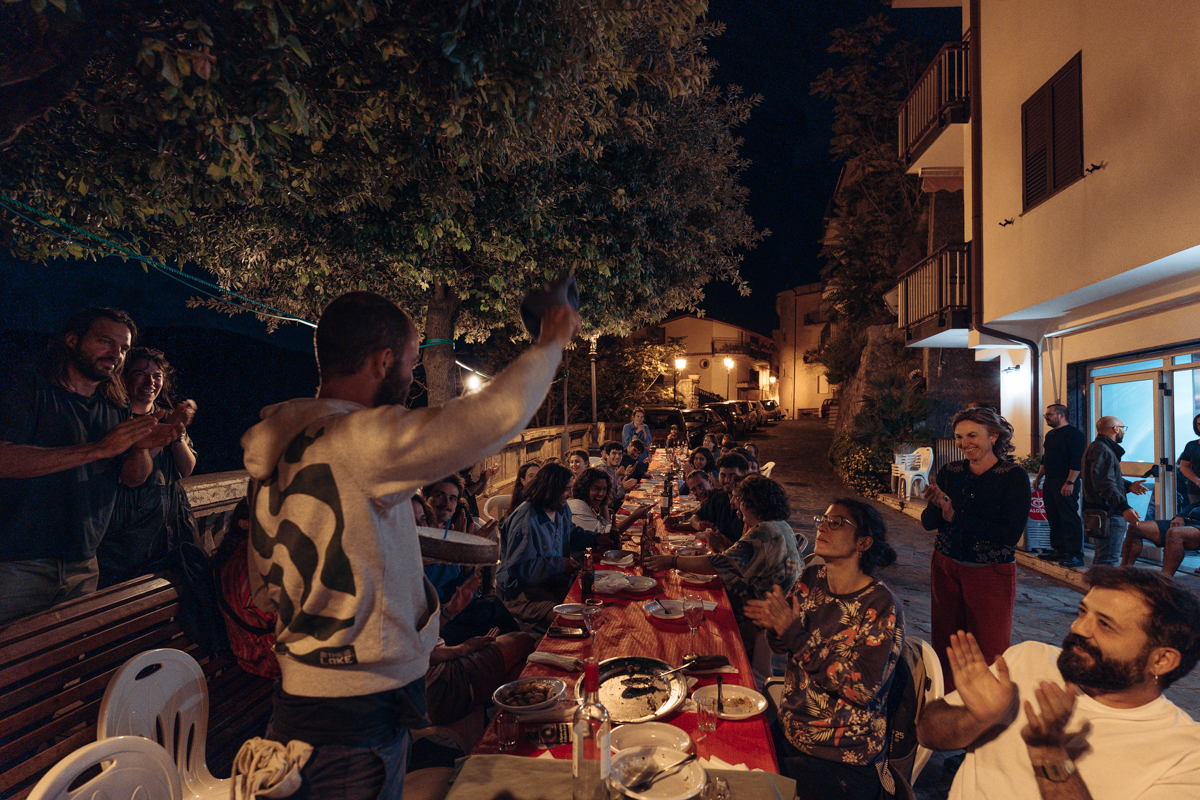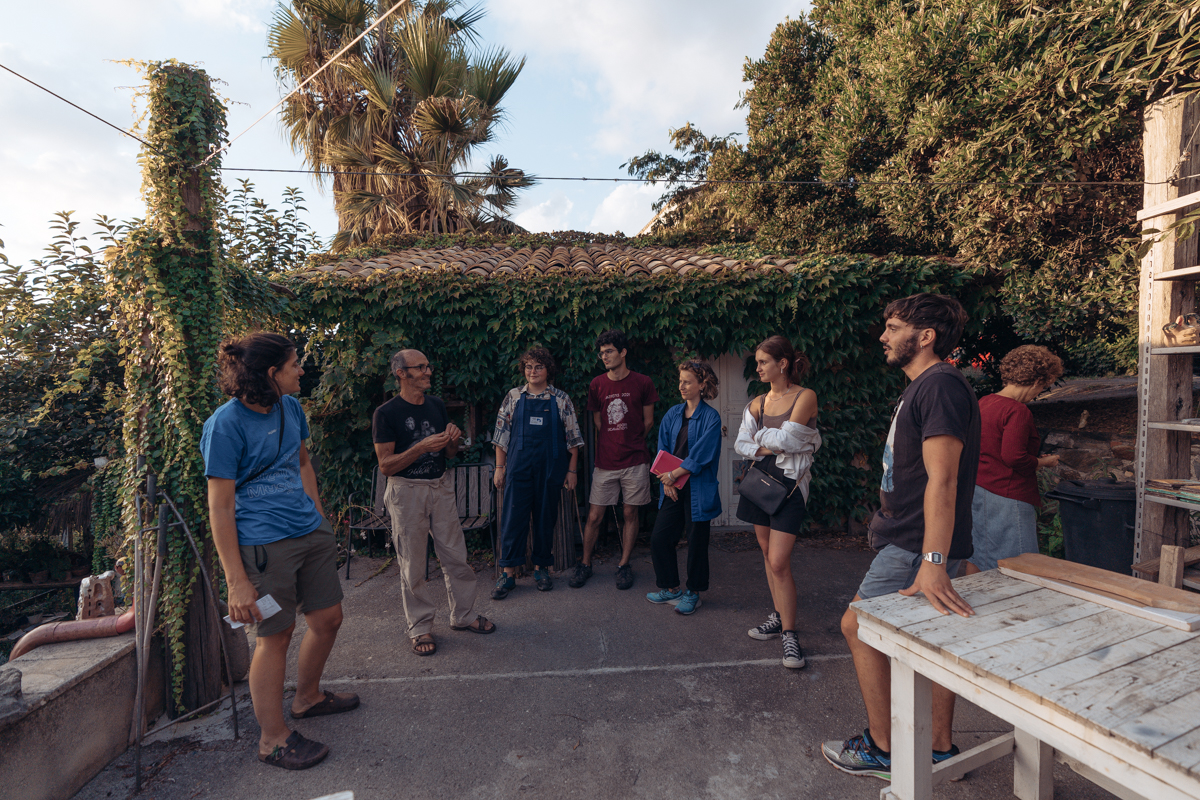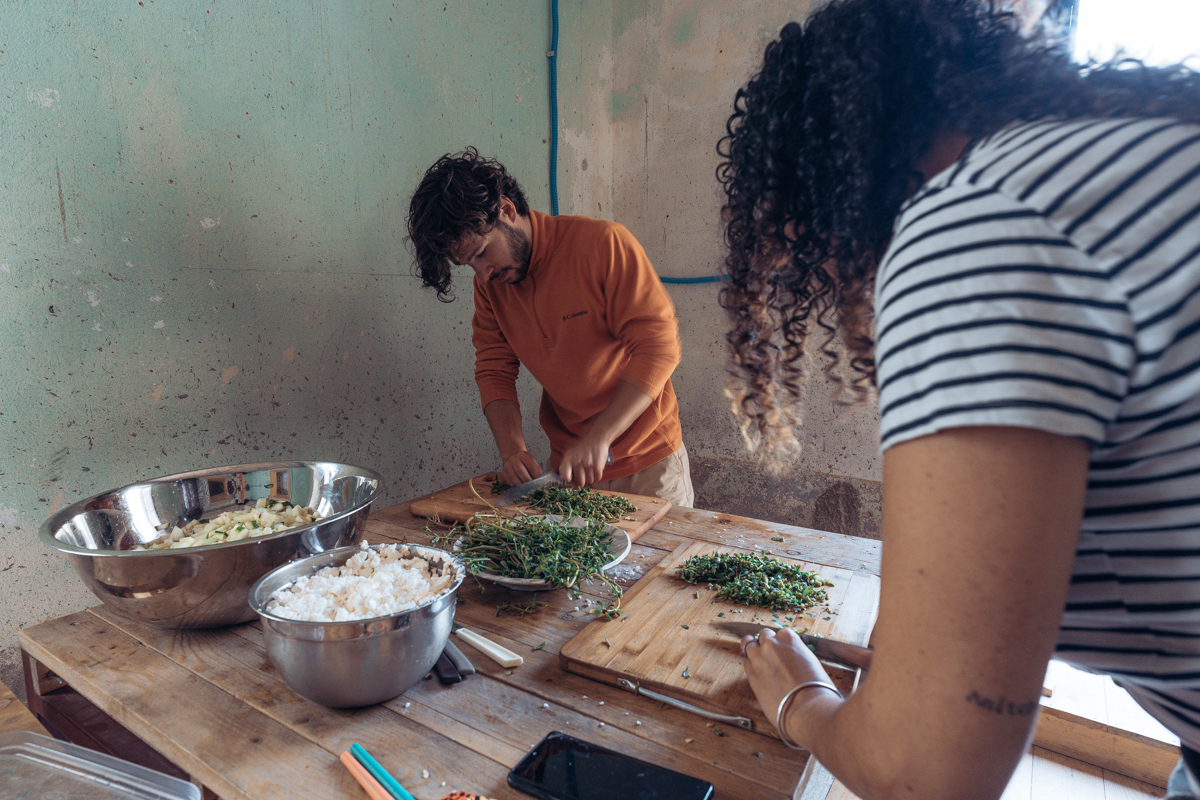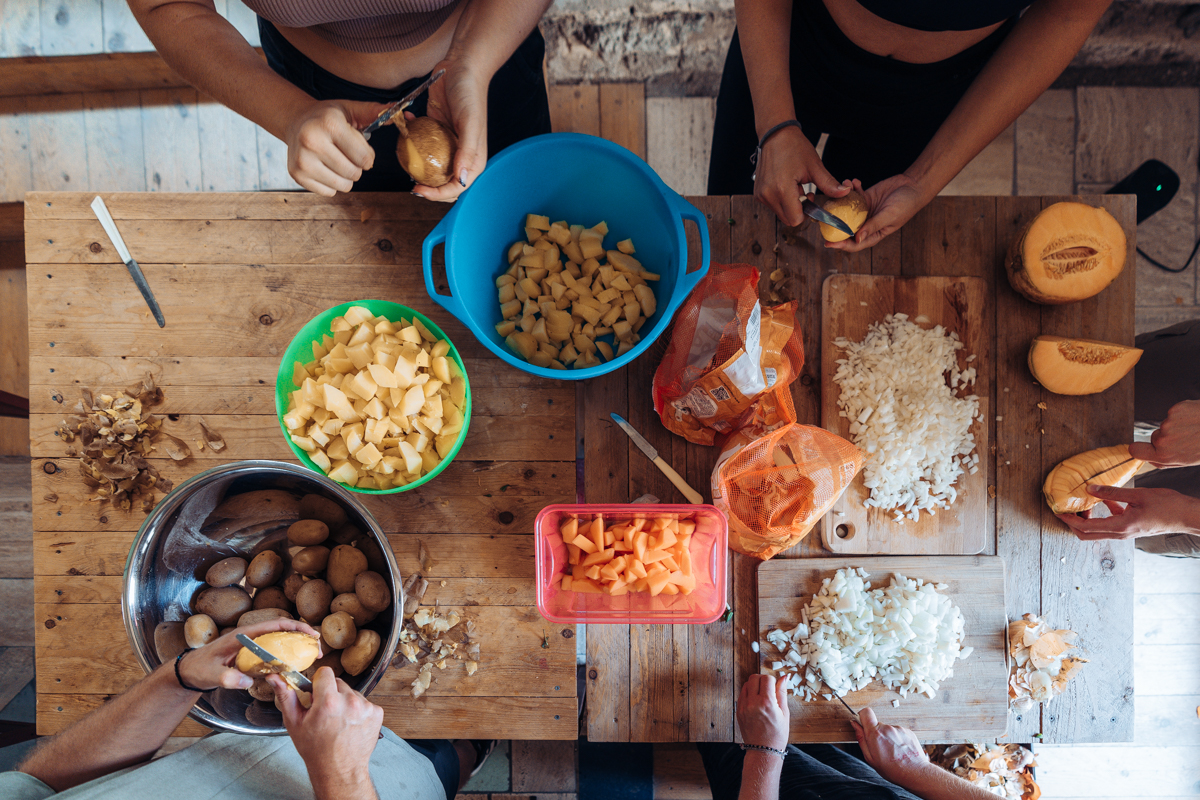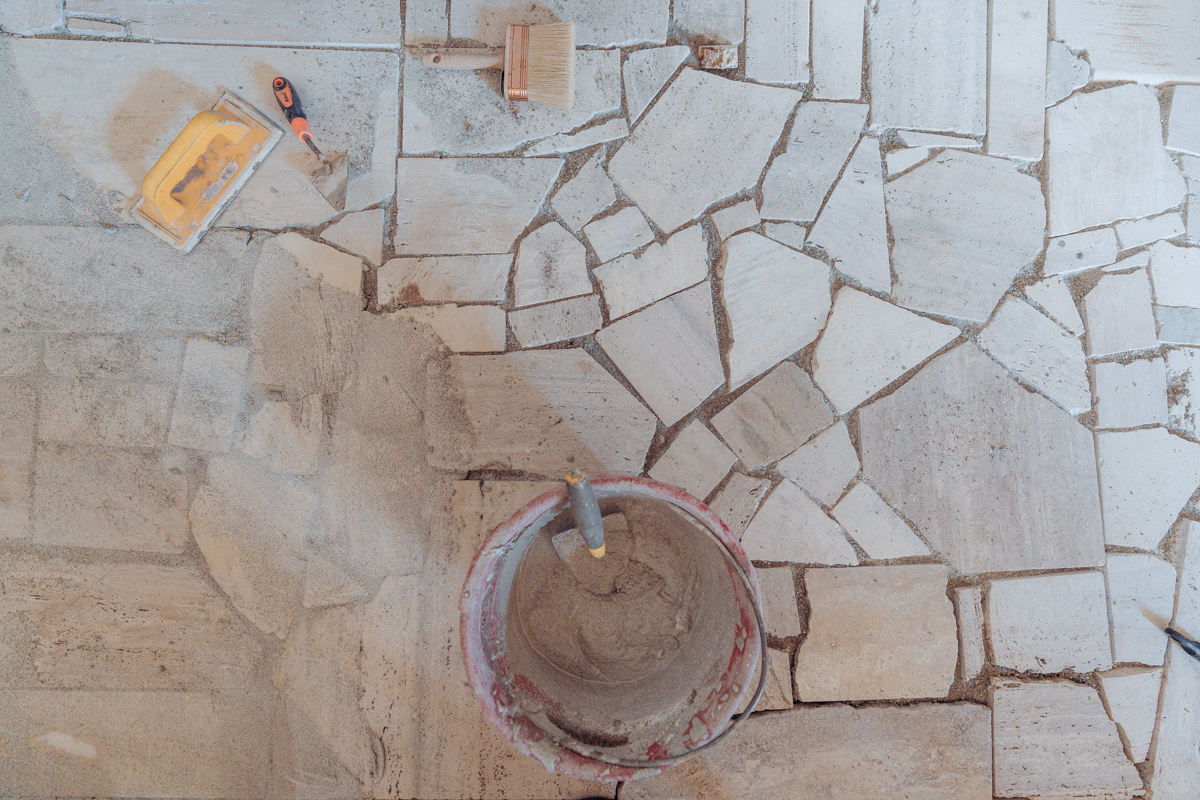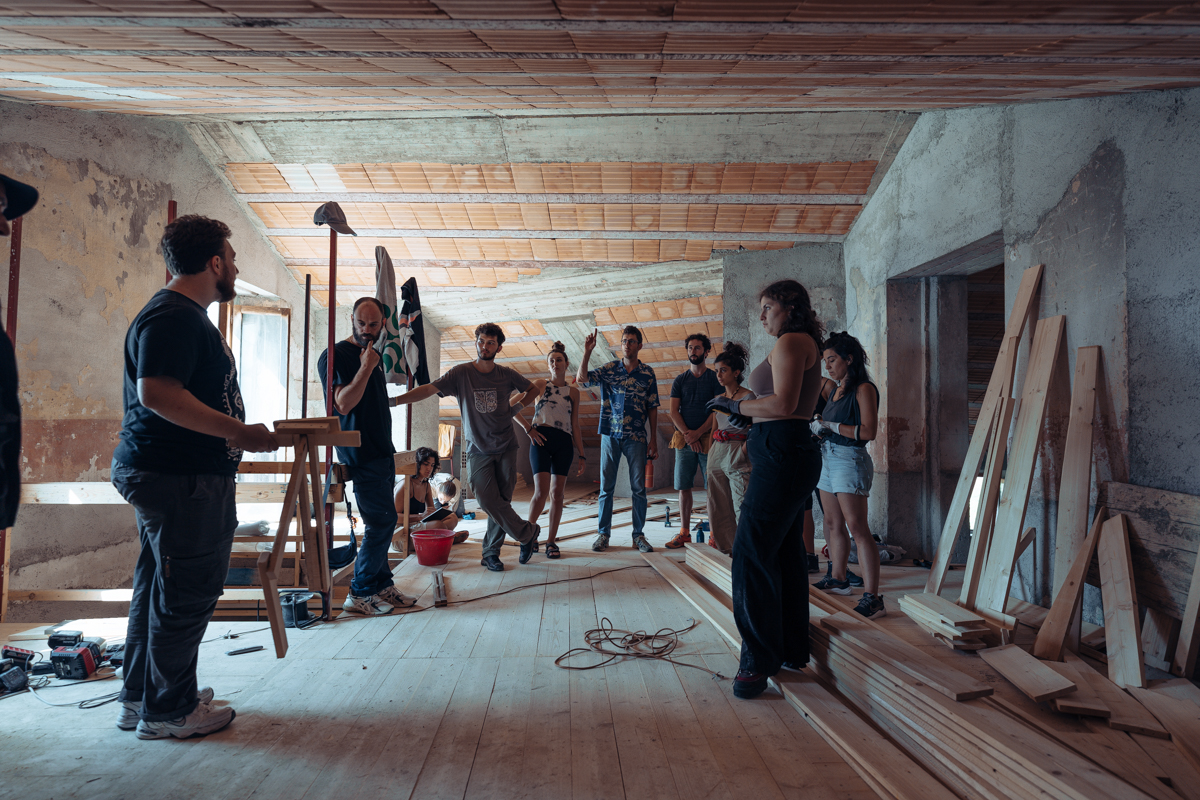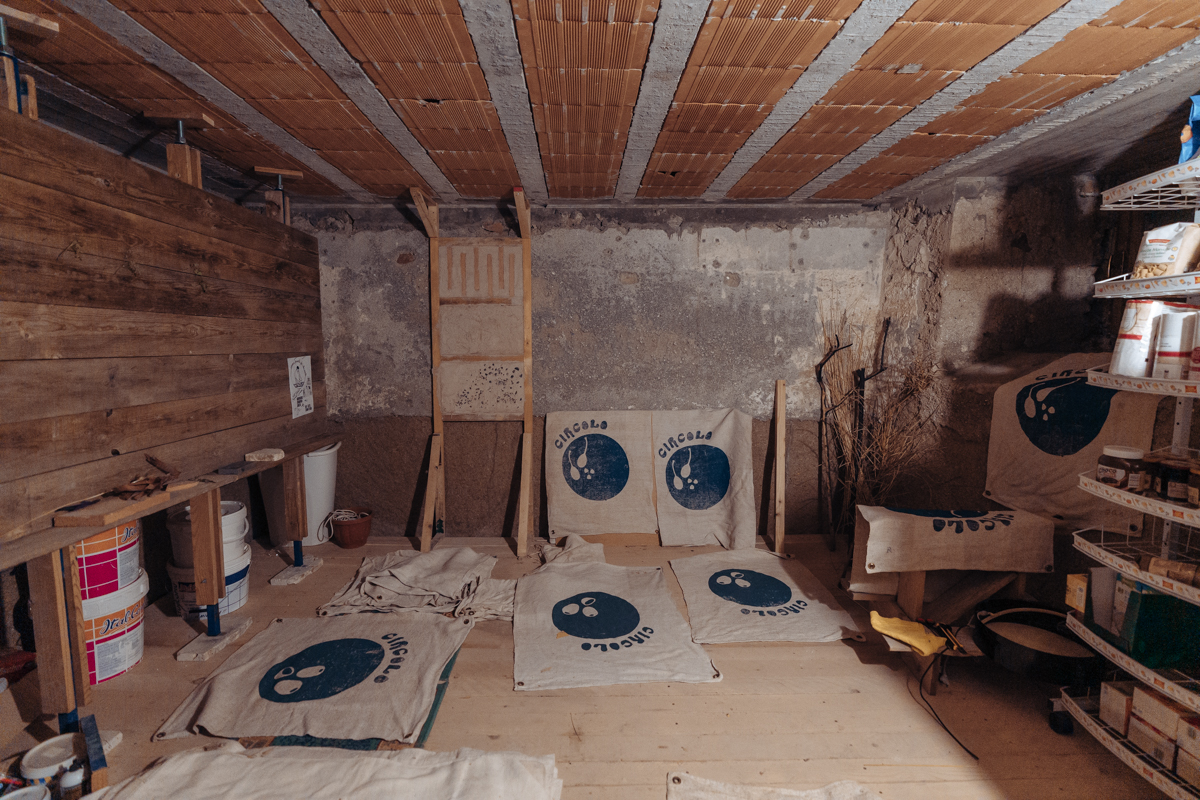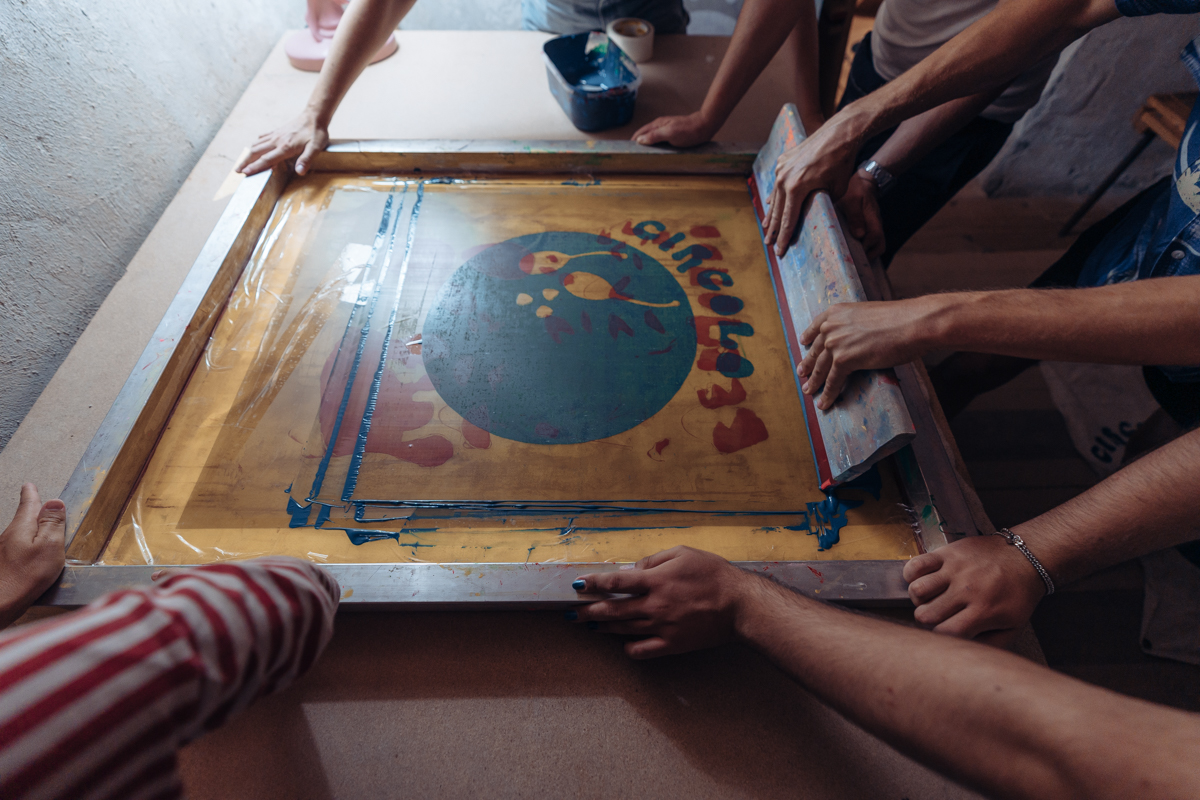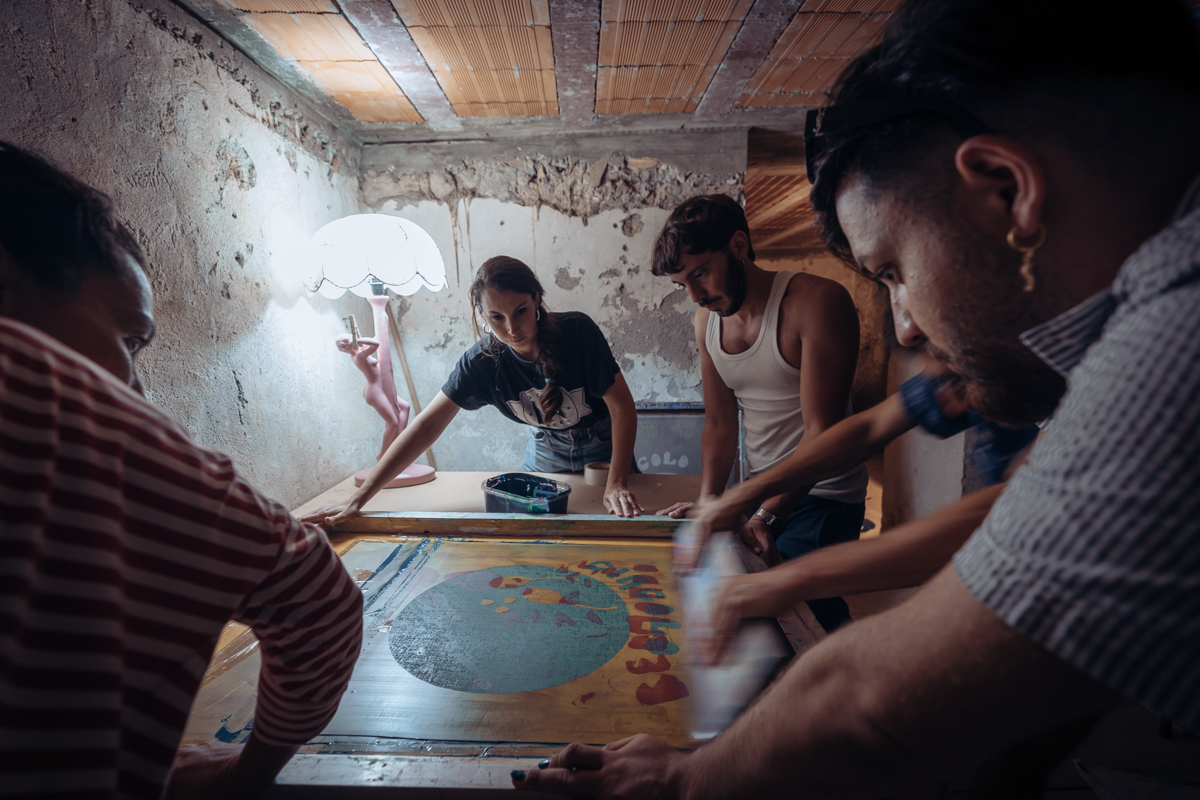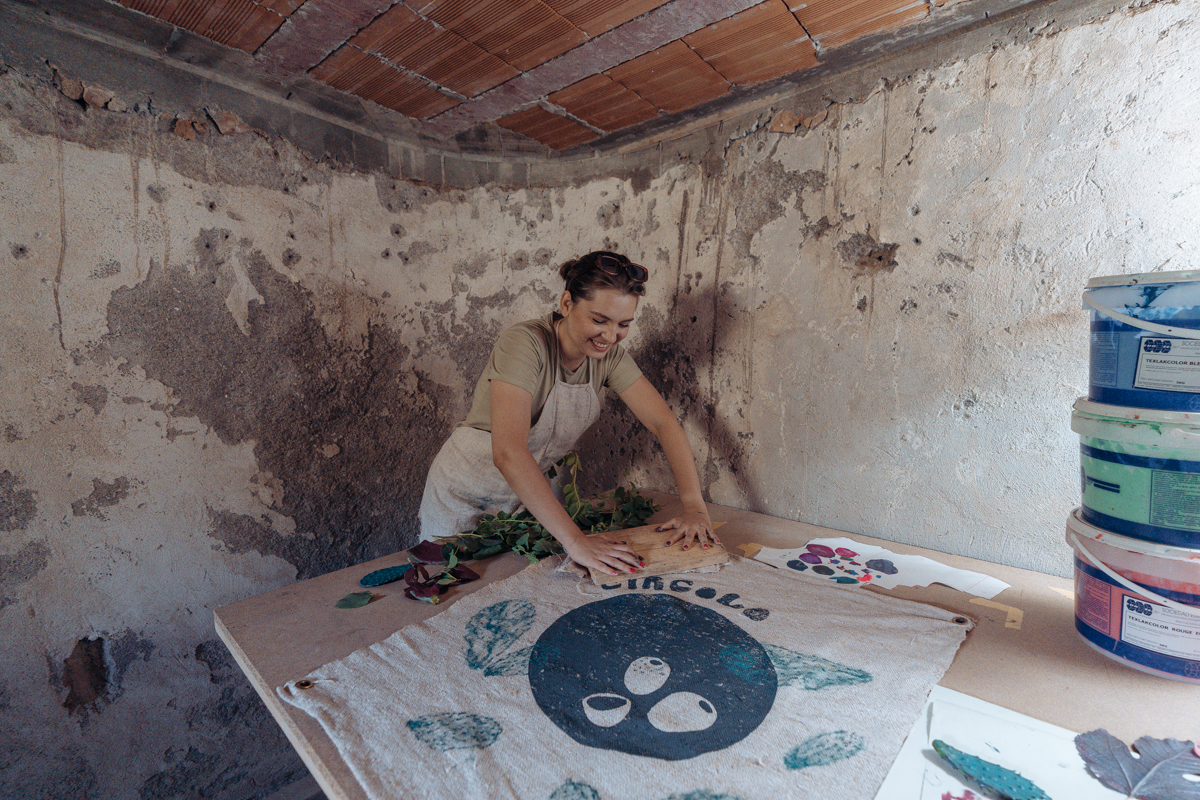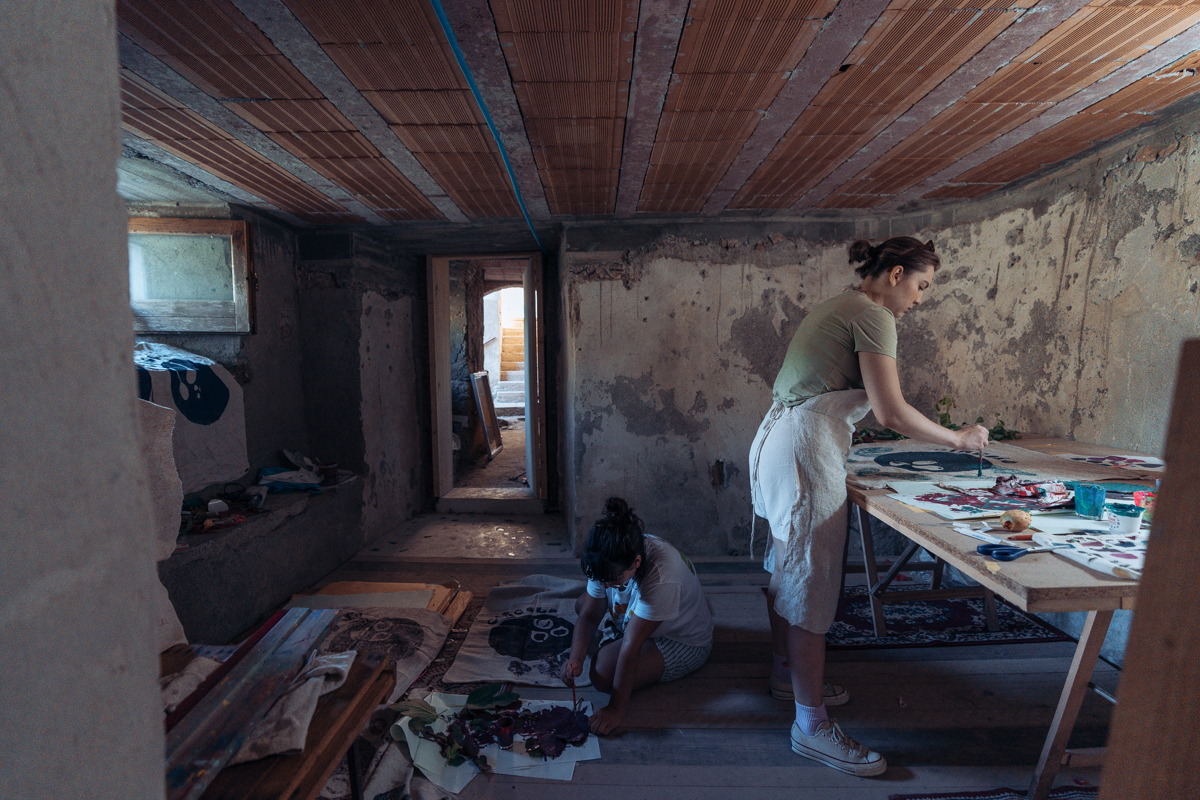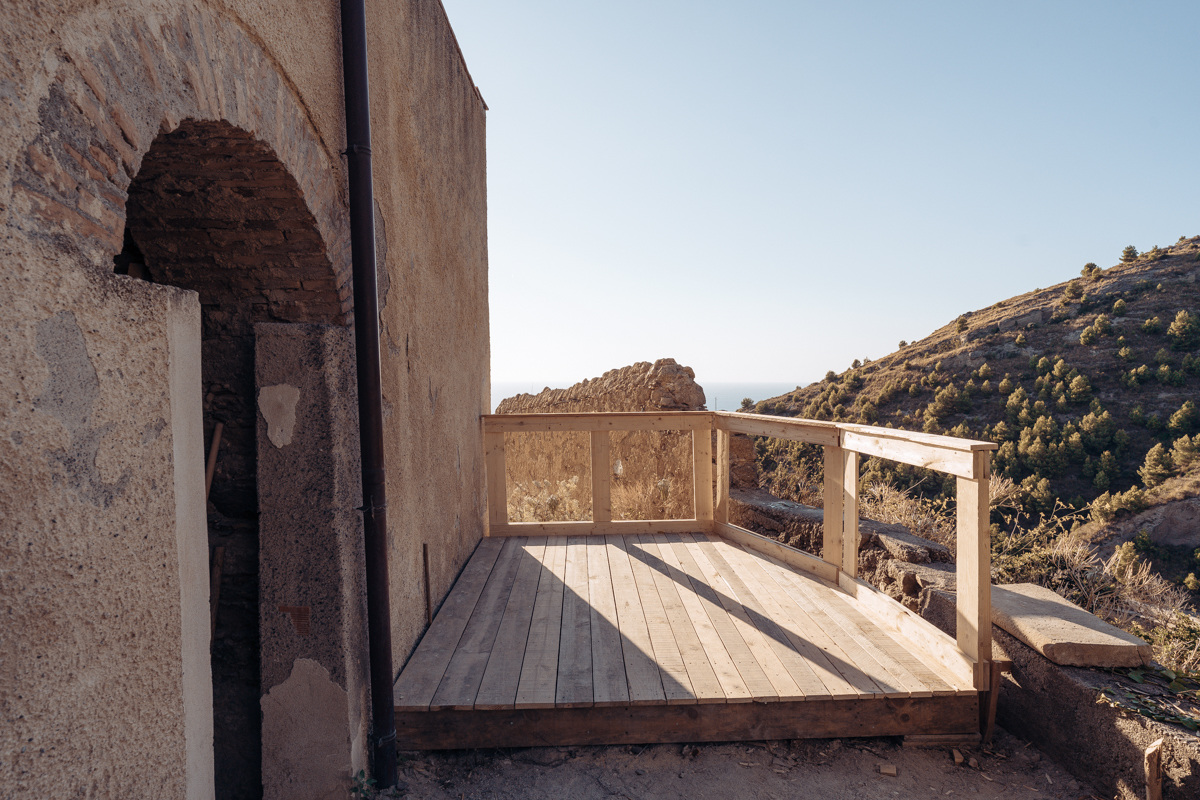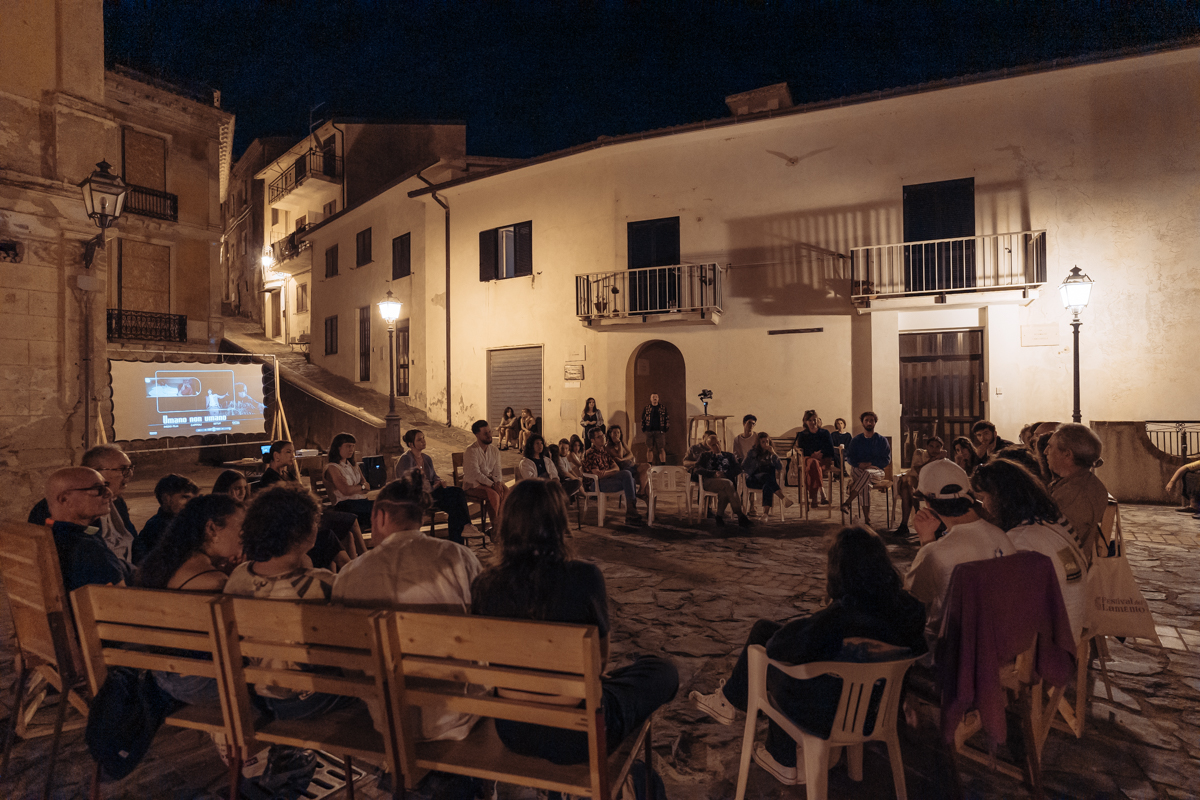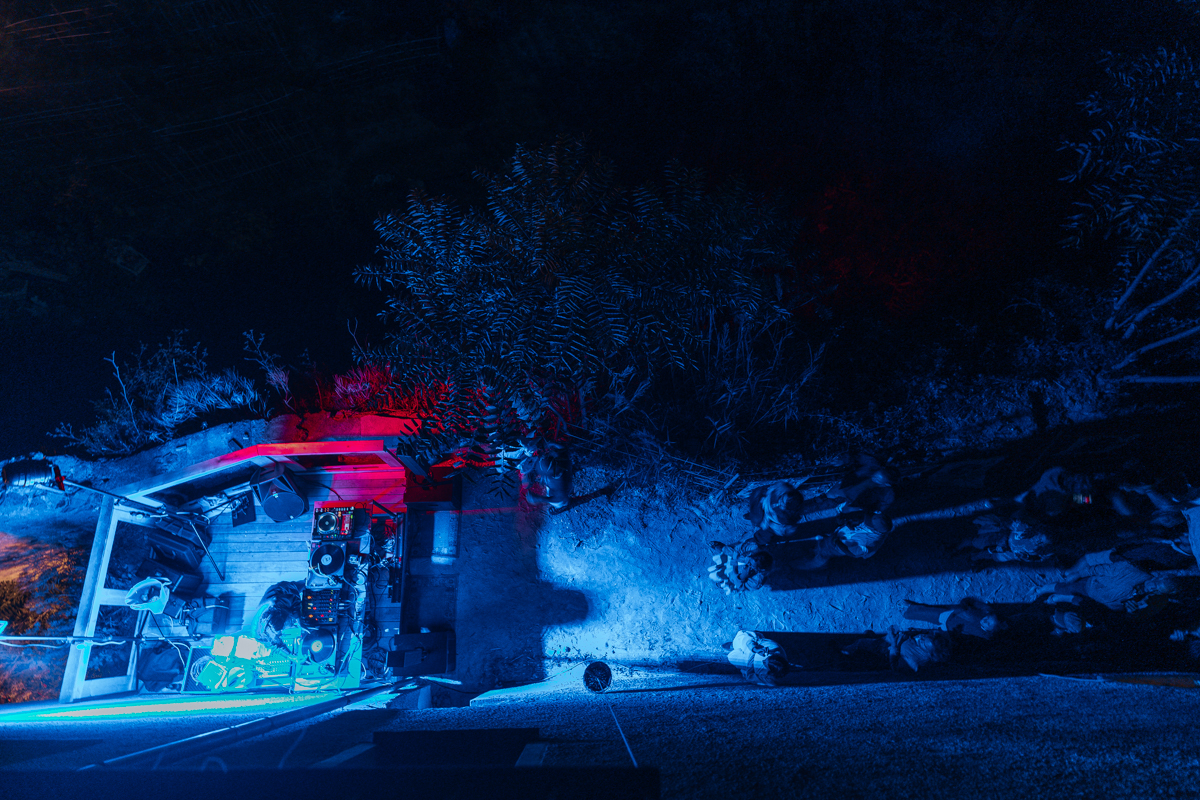The Umano non umano workshop took place in Casa di Belmondo, at Belmonte Calabro in August 2023, with 30 students and 17 partners from Italy, Greece and France.
For this second workshop of the italian cycle, the aim was to try to put into practice the research work of the first workshop “Seeding Belmondo”, setting up a construction site between the first and second floor of the Casa di BelMondo. This productive workshop was also the opportunity to continue the construction of a space that can meet the different needs of the people who now pass through Belmonte Calabro for medium to long periods of time throughout the year.
Focus on the work already done
During the first workshop in november 2022, participants worked in the cellar spaces of Casa di BelMondo. These spaces were transformed into a dynamic laboratory where they could collect, study and experiment with local and non-local building techniques and materials.
The work carried out also retraced the work already done on the Casa di BelMondo in recent years and collected the relationship between the Rivoluzione delle Seppie collective and the Belmonte Calabro community in a comic strip story.
Since 2019, the Casa di BelMondo domestic construction site has represented an additional opportunity to establish a process of continuous communication between architects, collaborators, clients, and the local community, making the construction site a daily event thanks to which all those who live in the area can participate in its construction, transforming the construction site into a communication and exchange tool at the service of the environment and the community.
Building Belmondo – Domestic infrastructure
The Casa di Belmondo became an utterly habitable space and in which, together with the students and collectives, the objective was to build different living environments, always fluid and hybrid, which can respond to the diverse needs of the people who now pass through Belmonte throughout the year for medium-long periods.
The process of architectural creation proposed on the House of BelMondo allows all the people who inhabit it a constant possibility of overwriting uses and needs that are subsequently transformed into the constructive and living exercise of the House. In practice, the proposed building site model becomes the translation of needs and materializes the necessary functions immediately.
The Home Building Site is to inhabit the building site in order to generate a very strong bond with the space under construction and to accelerate the relationships between the people who build and inhabit it. The space is inhabited at the same time as it is being built, and therefore, the relationship with the growth of the space becomes a personal or, better, interpersonal exercise, an initial test for future functions and transformations.
The people involved, professionals and non-professionals, both local, national and international, not only collaborate on the technical side and the development of the work, but also inhabit the site as a place of encounter and domestic life, constantly taking care of it.
Living Belmondo : Umano non Umano / Human, not Human
It was necessary to start again from the concrete places of life to regenerate communities. Public space is a frontier of connections; it is here that social life takes place, and it is here that communities build their own identity and gain experience simultaneously.
Co-designing public space means putting relationships back at the centre, creating collective conversations with the different souls of the place, not just humans.
For these reasons, this second workshop was a path of collective study and exploration to map the village’ green areas, collecting materials useful for the research initiated by the Glocal Center, the committee of Care formed by local and international associations, by informal groups, the municipal administration and citizens that focuses on the care and management of the tangible and intangible commons of Belmonte Calabro. This new body being formed sees among its primary objectives promoting responsible behaviour for conserving and enhancing green areas.
Starting from the idea of a census of all the essences and plants present in the Belmontese area, “Int’e graste we trust (In the plants we believe)” is a small communication, narration and awareness campaign to respect and enhance the green areas of Belmonte Calabro, co-designed with the Green Thumbs and the country’s political and educational bodies.
This widespread communication campaign, through the installation of small aesthetic devices that tell about the plants present and how to preserve and care for them, aims to make everyone, both inhabitants and visitors, more aware of the importance of promoting a culture of respect and protection of the environment, enabling greater attention to nature and its balance.
We are used to a system developed over many years by establishing practices and models that are difficult to change. For this, above all, awareness is needed to face a learning and change path with the right decision. There are new skills to bring into organisations, new ways of working with more cooperation and fewer vertical approaches. Participation and involvement must bring creativity, new solutions and new protagonists.
Educational environments
Co-design and co-production : The proposed design themes were the realization of the wood and marble flooring, the light partitions of the interior rooms, and the new mobile furniture.
Investigating the territory and meeting its inhabitants
Reflexive discussions : Edition and production of a fanzine
Participants involved
Students :
FR : Cyrille Vanpeene, Kémarine Stroobant, Iannis Cantaroglou, Camille Fourié, Nils Galloy, Apolline Langrognet, Juliette Blois, Nolwenn Biger, Luce Renaud, Nolwenn Jobard Hudousse, Anne Meirhaeghe, Simeon Naydenov, Alouna Nicolas, Lucie Crespin, Robinson Rossi
ITA : salvatore costanzo, margherita oberto, agnese ferro , martina spinelli , lorenzo fortunato , giulia montanaro , anastasia dremlyuga , francisco della casa, veronica diaz gutierrez
GR : Emmanouela fragkouli, theocharis liogkas, nikolaos nikolopoulos, georgios panaretos, orestis ioannis apostolatos, iw stouri, anna chrysanthopoulou, giorgis christophorou, anastasia kakava
Partners : La Rivoluzione delle Seppie, Orizzontale, Politecnico di Torino (Ianira Vassalo and Silvia Lanteri), Collectif Etc, ENSA Grenoble (Roberta Ghelli and Thea Manola), Zuloark, Tirilab, NTU Athen (Nichos Anastasopoulos and Panagiotis Vasilatos).
Credit : Giulia Rosco
